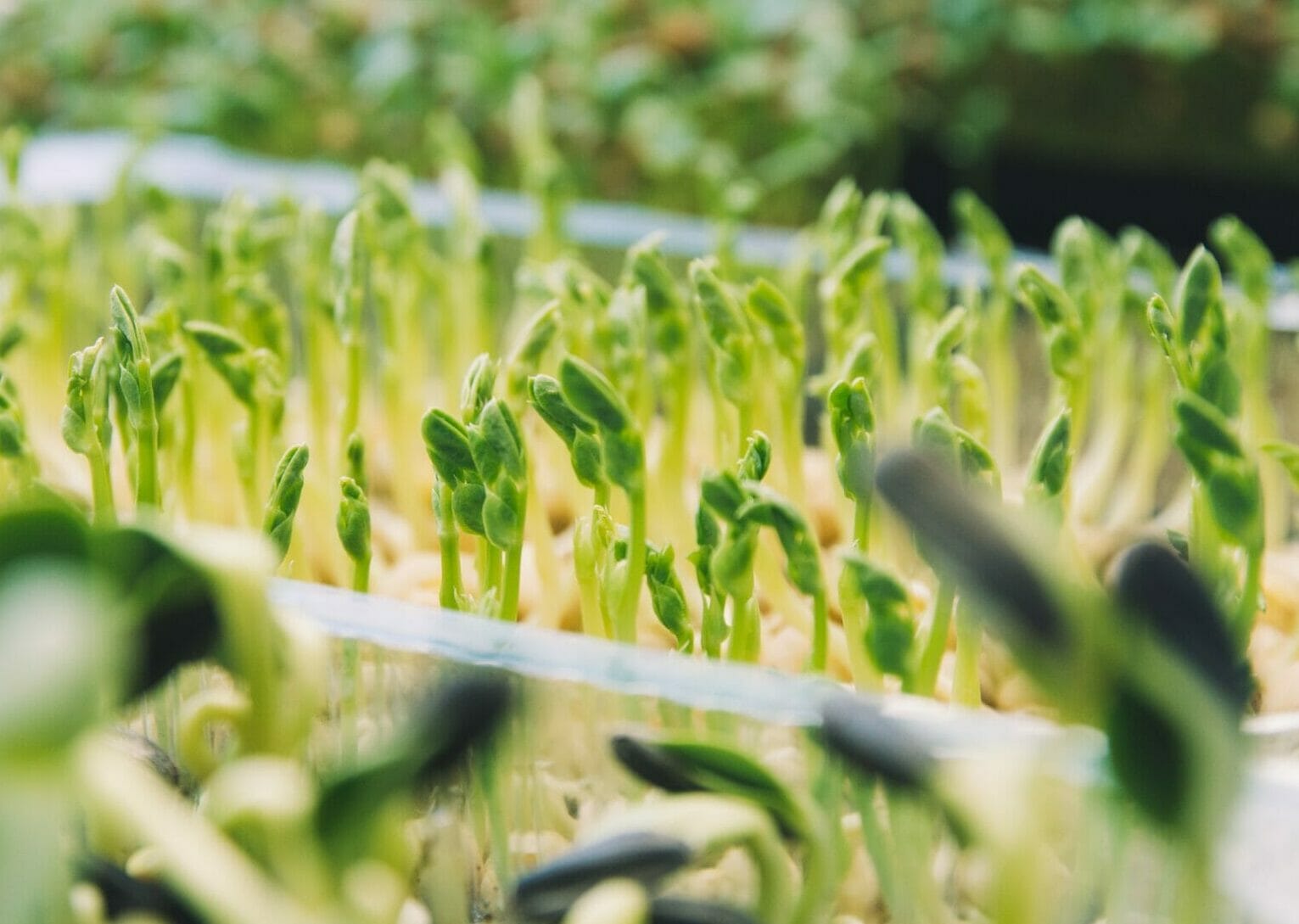
Organic agriculture and policy
Example hero paragraph text.
Why does organic matter?
Organic advances climate-smart agriculture
Organic agriculture reduces the greenhouse gas (GHG) footprint of farming by eliminating most fossil fuel–based inputs, and it builds climate resilience by promoting healthy soils, diversifying food crops, and supporting threatened wildlife habitats and biodiversity. Data shows that organic farming emits less nitrous oxide by avoiding chemical fertilizers and pesticides commonly used in conventional agriculture, and organic livestock production leads to fewer methane emissions compared with conventional concentrated animal feeding operations (CAFOs). By building healthy soils that retain water and store carbon, organic agriculture builds resilience and stabilizes our food supply in the face of drought and other extreme weather conditions that will occur with increasing frequency in a changing climate.

Organic attracts NextGen farmers and ranchers
A growing number of young and beginning farmers are committing to organic practices – organic seems to be a lure into American agriculture at a time when we need to repopulate our working lands. The 2017 Census of Agriculture reported that the average age of producers for all farms was 57.5 years, while that of organic farmers was 50.5 years. Perhaps more significantly, these organic farmers are much more likely to farm full time. This promising shift to organic farming is particularly important as farmers age out and a new generation produces the nation’s food.
Organic promotes American grown
US consumer demand for organic far outstrips supply. Given an insufficient domestic supply, many US companies have no choice but to import organic products. President Biden has emphasized the importance of American Made, issuing an Executive Order to promote rebuilding sectors that employ American workers. Organic should be a focus in this effort. Americans spend at least $2.2 billion annually on imported organic food according to the International Trade Commission. The USDA Foreign Agriculture Service assesses organic trade across the globe and has identified a key threat: India is looking to increase cropland to export to the US which could potentially eclipse domestic organic market opportunities, suggesting urgent action.
How does the Swette Center prioritize organic?
Swette Center reports on organic

Thinking in Time: Reflections from Organic Leaders
More than three decades ago, the US Congress passed the Organic Foods Production Act of 1990, the law that established national organic standards. To mark this milestone, the Swette Center reached out to ‘organic elders’ as well as next generation organic leaders to hear their stories and reflections on accomplishments to date and challenges ahead. Our forthcoming report captures some of their key insights and helpful advice on how to grow organic.
Report coming soon!

The Critical To-Do List for Organic Agriculture
In 2020, the Swette Center for Sustainable Food Systems launched a strategic, collaborative, multi-leader, and multi-pronged project to advance organic agriculture in the new Biden Administration and in the forthcoming farm bill currently being debated by Congress. The Critical To-Do List for Organic Agriculture sought to provide policy recommendations to the Biden Administration (46 recommendations for the 46th President) to better support the growing organic industry and its positive impacts on human health, on the economy, and on climate.

Thinking in Time: Reflections from Organic Leaders
More than three decades ago, the US Congress passed the Organic Foods Production Act of 1990, the law that established national organic standards. To mark this milestone, the Swette Center reached out to ‘organic elders’ as well as next generation organic leaders to hear their stories and reflections on accomplishments to date and challenges ahead. Our forthcoming report captures some of their key insights and helpful advice on how to grow organic.
Organic partnerships

Transition to organic partnership
program: monitoring and evaluation
We are excited to be the state lead for USDA’s Transition to Organic Partnership Program in Arizona. Beginning in 2023, we will work with the Western Regional Center for Organic Transition, led by California Certified Organic Partners (CCOF), and partners across the state to develop an organic farmer-to-farmer mentorship program, technical assistance, and workforce training events and materials over the 5 years of the project. The Swette Center is also leading the region’s data collection and monitoring efforts to create a learning environment to aid partners throughout the region in understanding their impact and make the most of this historic investment in the future of organic agriculture. We are looking forward to our role in creating an improved and strengthened organic infrastructure that will better serve Arizona’s producers, support the growing interest in organic production, and strengthen consumer trust in the USDA organic label.
In the news: articles on organic from Kathleen Kerrigan
Swette Center Executive Director
Organic food has become mainstream but still has room to grow
“Organic food once was viewed as a niche category for health nuts and hippies, but today it’s a routine choice for millions of Americans. Today over half of organic sales are in conventional grocery store chains, club stores and supercenters; Walmart, Costco, Kroger, Target and Safeway are the top five organic retailers.
Surveys show that 82% of Americans buy some organic food, and availability has improved. So why do overall organic sales add up to a mere 6% of all food sold in the U.S.? And since organic farming has many benefits, including conserving soil and water and reducing use of synthetic chemicals, can its share grow?”
– Kathleen Kerrigan,
Swette Center Executive Director
Unlike the US, Europe is setting ambitious targets for producing more organic food
“Organic production generates fewer greenhouse gas emissions than conventional farming, largely because it doesn’t use synthetic nitrogen fertilizer. And it prohibits using synthetic pesticides and giving hormones or antibiotics to livestock.
But the U.S. isn’t currently setting the bar high for growing its organic sector. Across the Atlantic, Europe has a much more focused, aggressive strategy.”
– Kathleen Kerrigan,
Swette Center Executive Director
Related research projects
-

Arizona food systems
Introduction Being based in Arizona, it’s only natural that supporting our home state’s food system is a top priority for the Swette Center. Arizona’s food system faces unique challenges due to the state’s arid climate and water scarcity. However, Arizona also presents opportunities for innovative approaches to promote sustainable food production and distribution. Sustainable agriculture…
-
Engaging the private sector
Lorem ipsum dolor sit amet, consectetur adipiscing elit, sed do eiusmod tempor incididunt ut labore et dolore magna aliqua. Ut enim ad minim veniam, quis nostrud exercitation ullamco laboris nisi ut aliquip ex ea commodo consequat. Duis aute irure dolor in reprehenderit in voluptate velit esse cillum dolore eu fugiat.
-

Empowering indigenous foodways
Lorem ipsum dolor sit amet, consectetur adipiscing elit, sed do eiusmod tempor incididunt ut labore et dolore magna aliqua. Ut enim ad minim veniam, quis nostrud exercitation ullamco laboris nisi ut aliquip ex ea commodo consequat. Duis aute irure dolor in reprehenderit in voluptate velit esse cillum dolore eu fugiat.